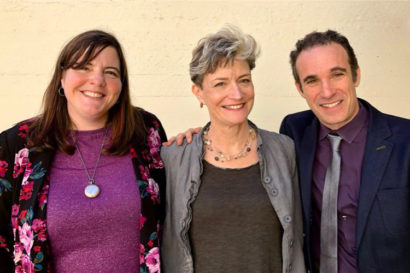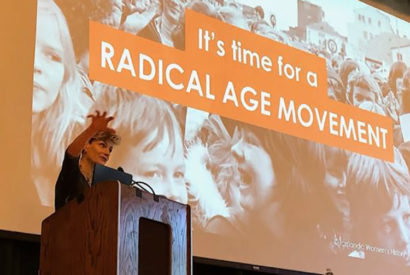Berkeley Talks: Author Ashton Applewhite on counteracting ageism
Applewhite, named one of PBS Next Avenue’s Influencers in Aging and author of This Chair Rocks: A Manifesto Against Ageism, talks about her work, which explores ageism’s destructive impact on individuals, our communities and our policies
March 25, 2019
Ashton Applewhite, named one of PBS Next Avenue’s Influencers in Aging and author of the breakaway new book, This Chair Rocks: A Manifesto Against Ageism, share her own personal experiences with ageism — defined as “treating a person differently on the basis of age” and discusses her work, which explores ageism’s destructive impact on individuals, our communities and our policies.
Chronological age is often a key factor in decision-making about treatment for physical and mental health; or selection for housing, employment, or access to other opportunities, says Applewhite. Yet, she argues, age alone is a poor predictor and she pushes back on ageist assumptions that people within any given age group are all the same. They vary substantially in their capacities−and census data show growing diversity in every age group.
Nevertheless, unfounded ageist stereotypes result in marginalization and discrimination against older people.

From left: Cary Sweeney, director of the UCB Retirement Center; Ashton Applewhite; Andy Gaines, executive director of Ashby Village (Ashby Village photo by Nancy Rubin)
This Chair Rocks does not simply identify the problem. It offers a wealth of ideas about how to counteract ageism. As Applewhite explored the subject, she discovered a clear upside: “The possibility that life could be more fun in your eighties had never crossed my mind…nor that such joyful clarity would be rooted in awareness — not denial — that time was short and therefore to be savored.”
This talk, given on March 15, 2019, was hosted by Ashby Village and the UC Berkeley Retirement Center, who are committed to transforming aging in community. They hope this talk sparks interest in continuing an intergenerational conversation about collaborative efforts to build a community that works well for all ages.
